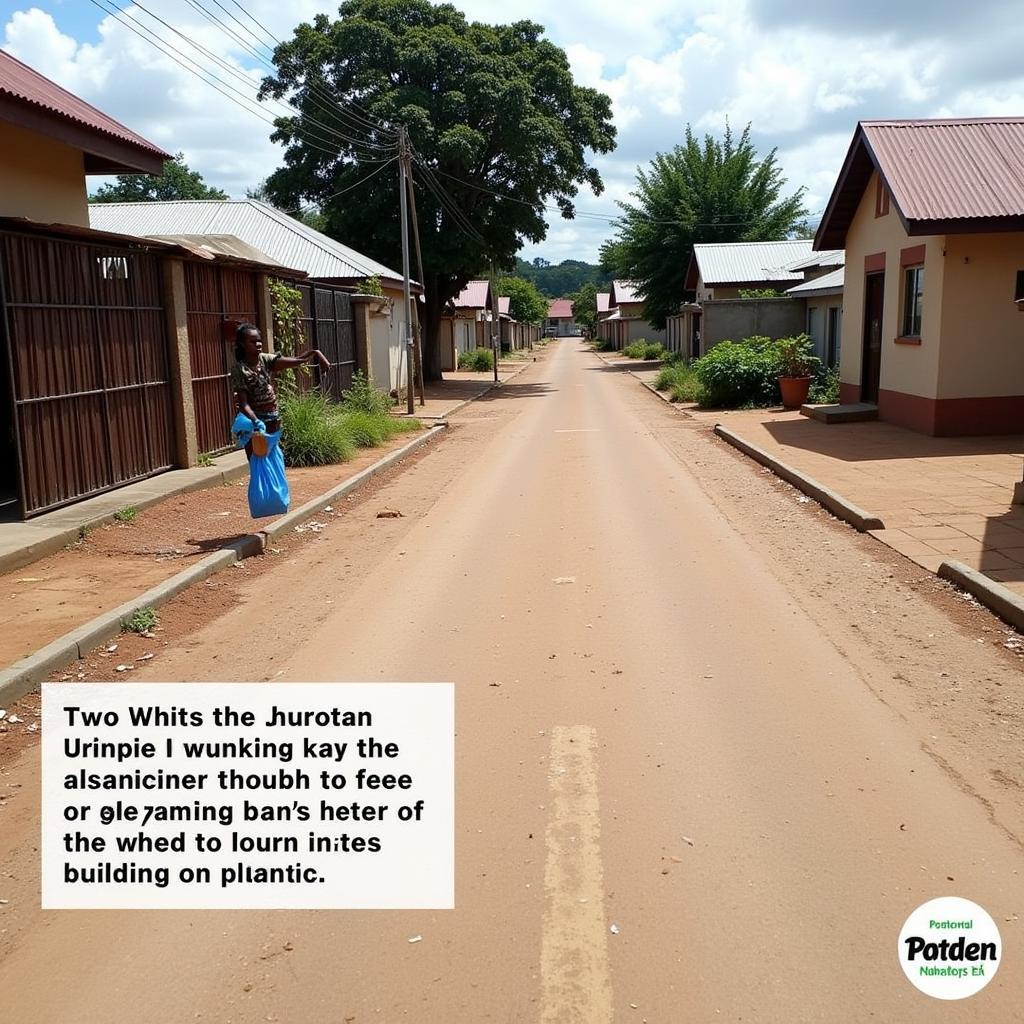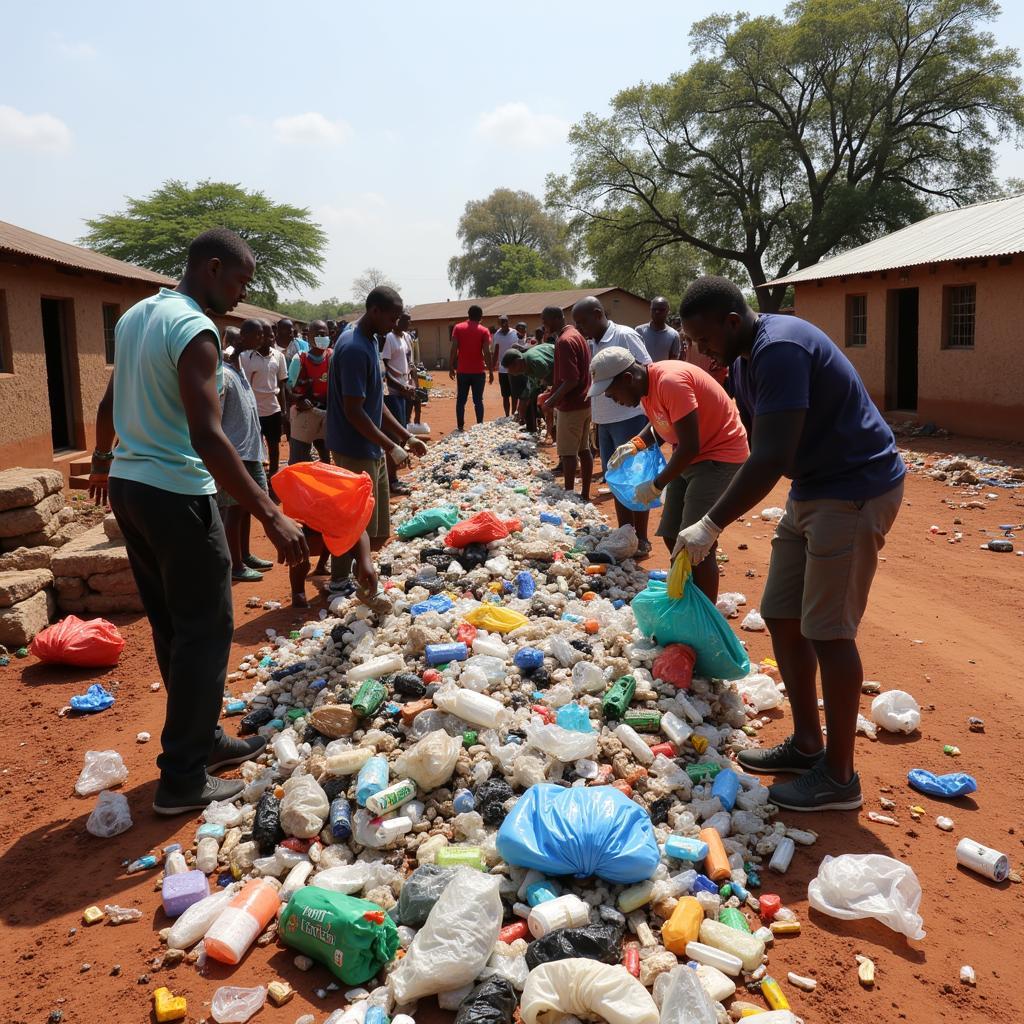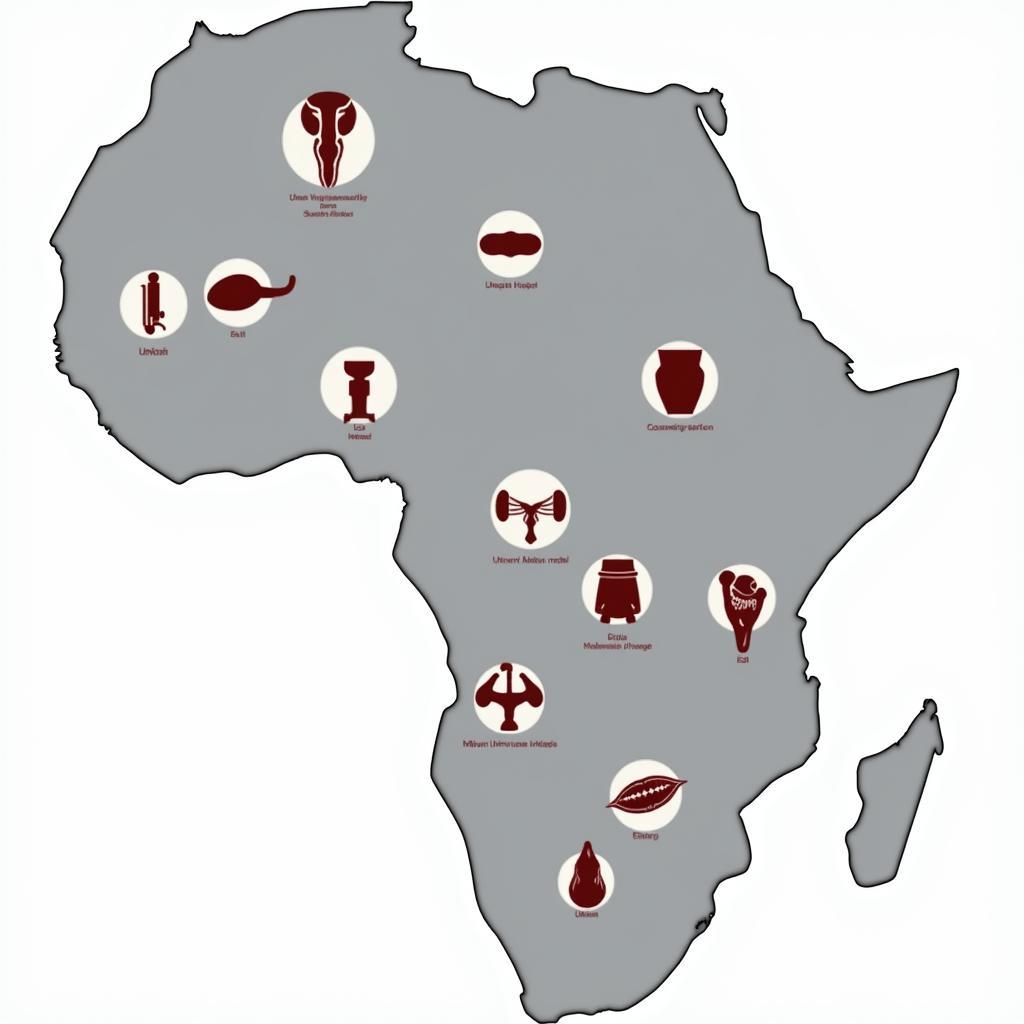African Country Ban Plastics: A Growing Trend
Several African countries have taken the initiative to ban plastics, aiming to protect their environment and public health. This signifies a growing trend across the continent to combat plastic pollution, a significant environmental challenge. These bans primarily target single-use plastics like bags, straws, and bottles, which contribute significantly to waste and pollution. african country bans plastic bags
Why Are African Countries Banning Plastics?
The rationale behind these bans is multifaceted. Plastic waste poses a serious threat to ecosystems, wildlife, and human health. Plastic bags, for instance, often end up clogging drainage systems, contributing to flooding and creating breeding grounds for disease-carrying mosquitoes. Furthermore, the burning of plastic waste releases toxic fumes into the air, posing respiratory hazards. In many African countries, waste management infrastructure is underdeveloped, exacerbating the problem. Banning plastics is seen as a proactive step towards mitigating these negative impacts.
The impact of plastic pollution on tourism, a vital sector for many African economies, is also a key driver for these bans. Pristine beaches and natural landscapes are crucial for attracting tourists, and plastic waste significantly detracts from their beauty and appeal. By banning plastics, these countries aim to preserve their natural assets and ensure the sustainability of their tourism industries.
Which African Countries Have Banned Plastics?
A growing number of African countries have implemented plastic bans to varying degrees. Some countries have imposed complete bans on specific types of single-use plastics, while others have opted for partial bans or levies. Rwanda, for example, has been lauded for its comprehensive ban on plastic bags, demonstrating significant success in reducing plastic pollution. Other countries like Kenya, Morocco, and South Africa have also implemented various forms of plastic bans. african country bans plastic bags
How Effective Are These Bans?
The effectiveness of plastic bans in Africa varies depending on factors like enforcement, public awareness, and the availability of alternatives. In some cases, bans have led to a significant reduction in plastic waste and improved environmental conditions. However, challenges remain, including smuggling of plastic bags across borders and the lack of affordable and accessible alternatives for some communities.
 Rwanda's successful plastic bag ban: A model for other African nations
Rwanda's successful plastic bag ban: A model for other African nations
Challenges and Opportunities
Implementing and enforcing plastic bans is not without its challenges. Public awareness and education are crucial for ensuring compliance. Providing affordable and readily available alternatives to single-use plastics is also essential. Furthermore, addressing the issue of plastic smuggling requires regional cooperation and strengthened border controls. However, these bans also present opportunities for innovation and the development of sustainable alternatives. Local entrepreneurs and businesses can play a significant role in developing and promoting eco-friendly products.
“Effective plastic bans require a multi-faceted approach, involving government regulations, community engagement, and private sector innovation,” says Dr. Amina Omar, an environmental scientist based in Nairobi. “It’s not just about banning the product, it’s about creating a system that supports sustainable alternatives and fosters a culture of responsible waste management.”
What Can Individuals Do?
Individuals can contribute to the success of these bans by adopting sustainable practices. Reducing our reliance on single-use plastics, choosing reusable alternatives, and properly disposing of plastic waste are essential steps. Supporting businesses that offer eco-friendly products and advocating for stronger environmental policies can also make a difference.
The Future of Plastic Bans in Africa
The trend of banning plastics in Africa is likely to continue as countries increasingly recognize the detrimental impacts of plastic pollution. With continued efforts, these bans have the potential to significantly improve environmental conditions, protect public health, and foster sustainable development across the continent. african country bans plastic bags
“The momentum for change is growing,” says Mr. Kofi Annan, an environmental activist from Ghana. “More and more African countries are realizing that plastic pollution is not just an environmental issue, it’s a social and economic issue as well. By taking action to ban plastics, these countries are investing in a healthier and more sustainable future.”
 Community cleanup of plastic waste in Africa
Community cleanup of plastic waste in Africa
In conclusion, the growing number of African countries banning plastics marks a significant step towards a more sustainable future. While challenges remain, these bans hold immense potential for positive environmental and social change. By working together, governments, communities, and individuals can contribute to a cleaner, healthier, and more prosperous Africa.
FAQ
- Why are plastic bags banned in some African countries? To protect the environment and public health.
- Which African country was the first to ban plastic bags? Rwanda is often cited as a pioneer.
- What are the challenges of implementing plastic bans? Enforcement, public awareness, and providing alternatives.
- What are the benefits of banning plastics? Reduced pollution, improved public health, and protection of ecosystems.
- How can I contribute to reducing plastic pollution? Reduce, reuse, recycle, and support sustainable businesses.
- Are plastic bans effective? Effectiveness varies, but they can significantly reduce plastic waste.
- What are some alternatives to plastic bags? Reusable bags, cloth bags, and paper bags.
Do you have other questions about African culture or life? Visit our other pages or contact us.
Contact us for support: Phone: +255768904061, Email: kaka.mag@gmail.com, Address: Mbarali DC Mawindi, Kangaga, Tanzania. We have a 24/7 customer service team.




